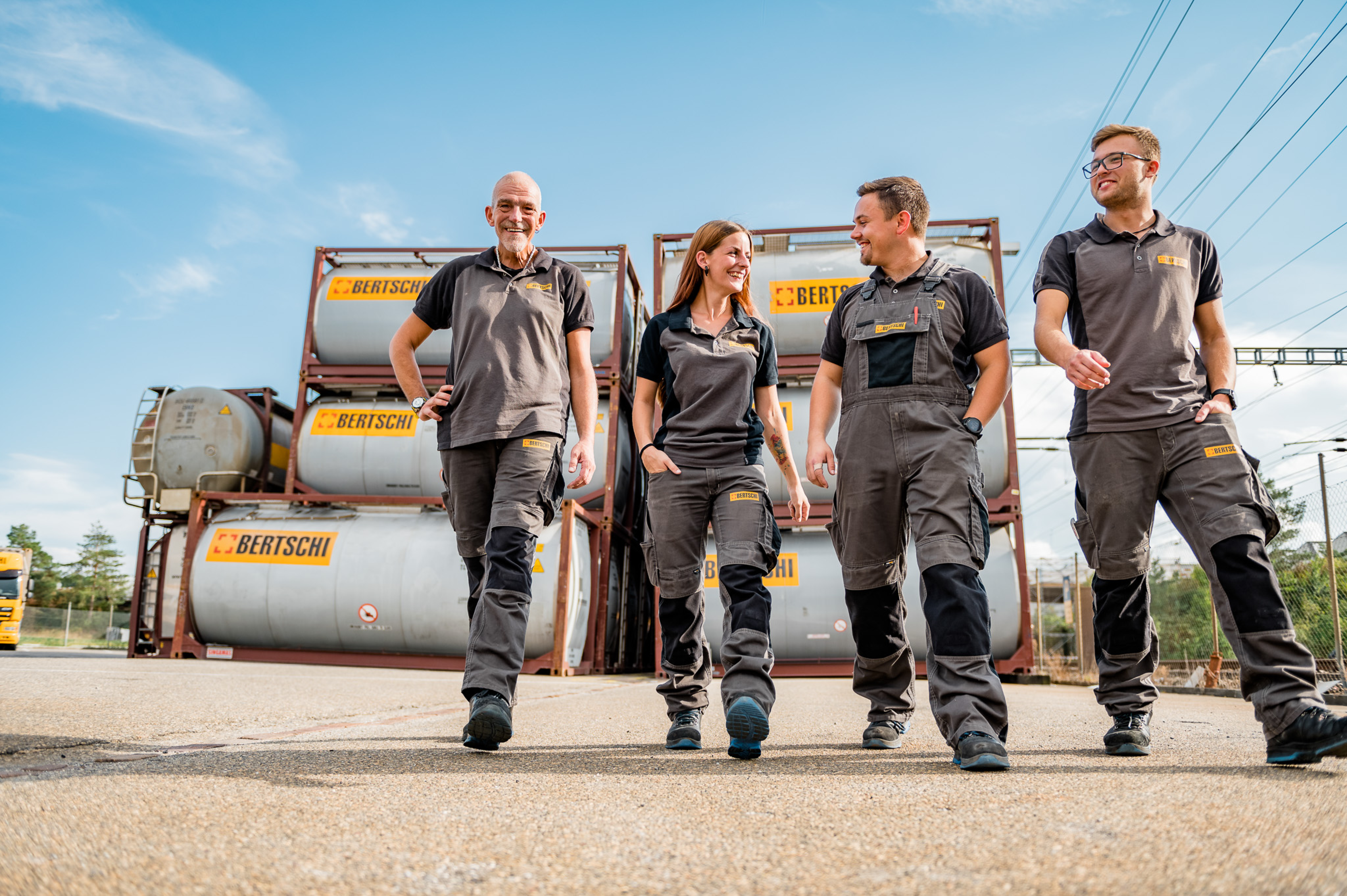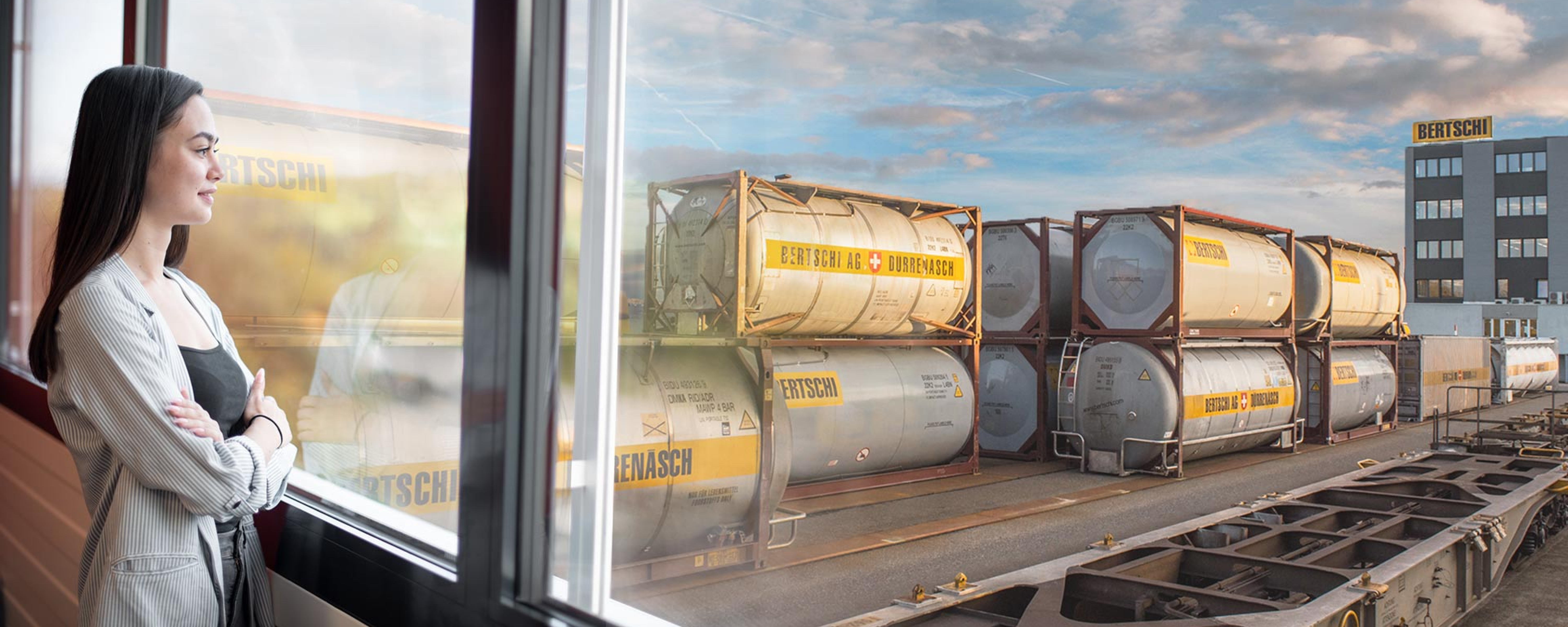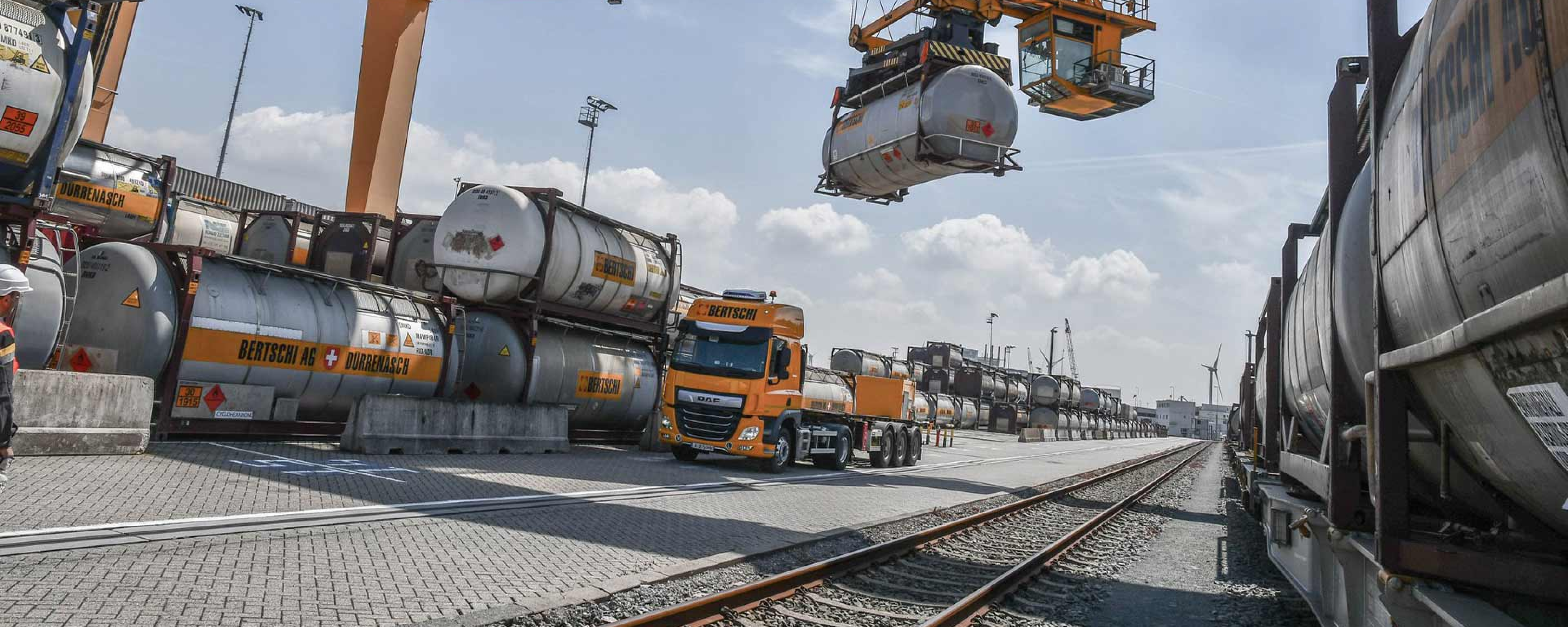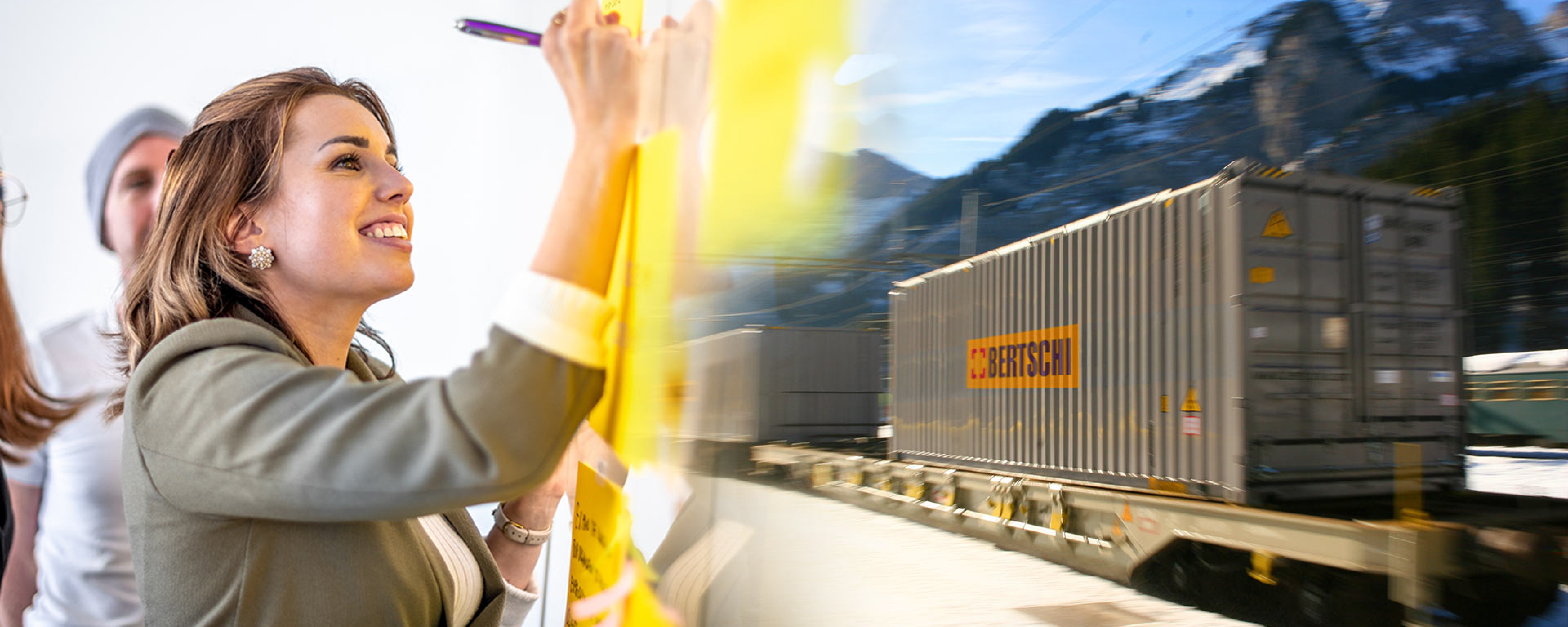Bertschi's 60-Year Jubilee as Intermodal Pioneer – and our Commitment to More Sustainable Supply Chain Innovation
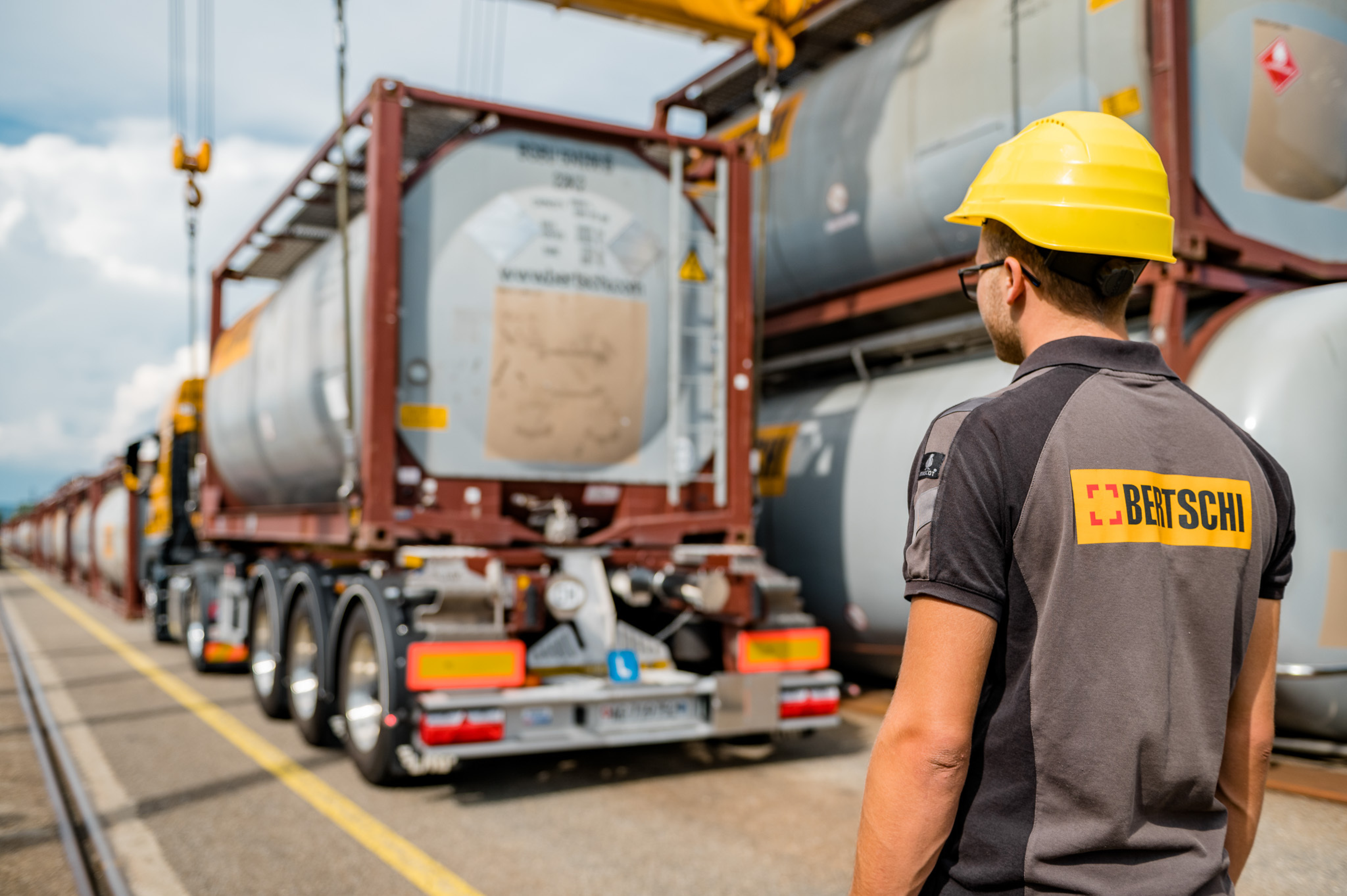
October 2024 – The Bertschi Group, market leader in intermodal chemical logistics, celebrates six decades of pioneering work in intermodal logistics. This anniversary coincides timely with the global push for sustainability. Today, intermodal freight transport is an essential means of sustainable and efficient transport for the chemical industry. But when Bertschi first put a chemical road tanker on a train in 1964, it was a groundbreaking innovation in Europe.
More than 60 years ago, the company was looking for a winter-proof route to efficiently transport chemical products from Germany, through the Alps, to Italy. At that time, there was still no winter-safe pass road and no road tunnel through the Alps. Many chemical goods therefore had to be transported to Italy in winter via the time-consuming sea route. Bertschi founder Hans Bertschi saw the solution in loading his chemical road tankers onto flatbed rail wagons, as there was an existing rail tunnel through the Gotthard providing safe transport in winter – an idea that was revolutionary at the time. After extensive discussions, the innovative concept was implemented in the autumn of 1964 as an all-year market offering, in close cooperation with the Swiss Federal Railways (SBB).
As Bertschi road tankers were loaded onto the railway between Basel and Lugano for the first time, it was the starting point for intermodal transport in Europe “This pioneering achievement is deeply rooted in the DNA of our company and has become one of Bertschi’s defining trademarks.” says Hans-Jörg Bertschi, Executive Chairman of the Bertschi Group. “The same forward-thinking mindset that shaped our past continues to enable us to deliver exceptional global supply chain solutions that meet the evolving needs of our customers,” he continues, “such as our new focus on the future decarbonized chemical industry.” The latter refers to new and complex inbound supply chain solutions of renewables as raw materials, substituting current oil and gas supplies.
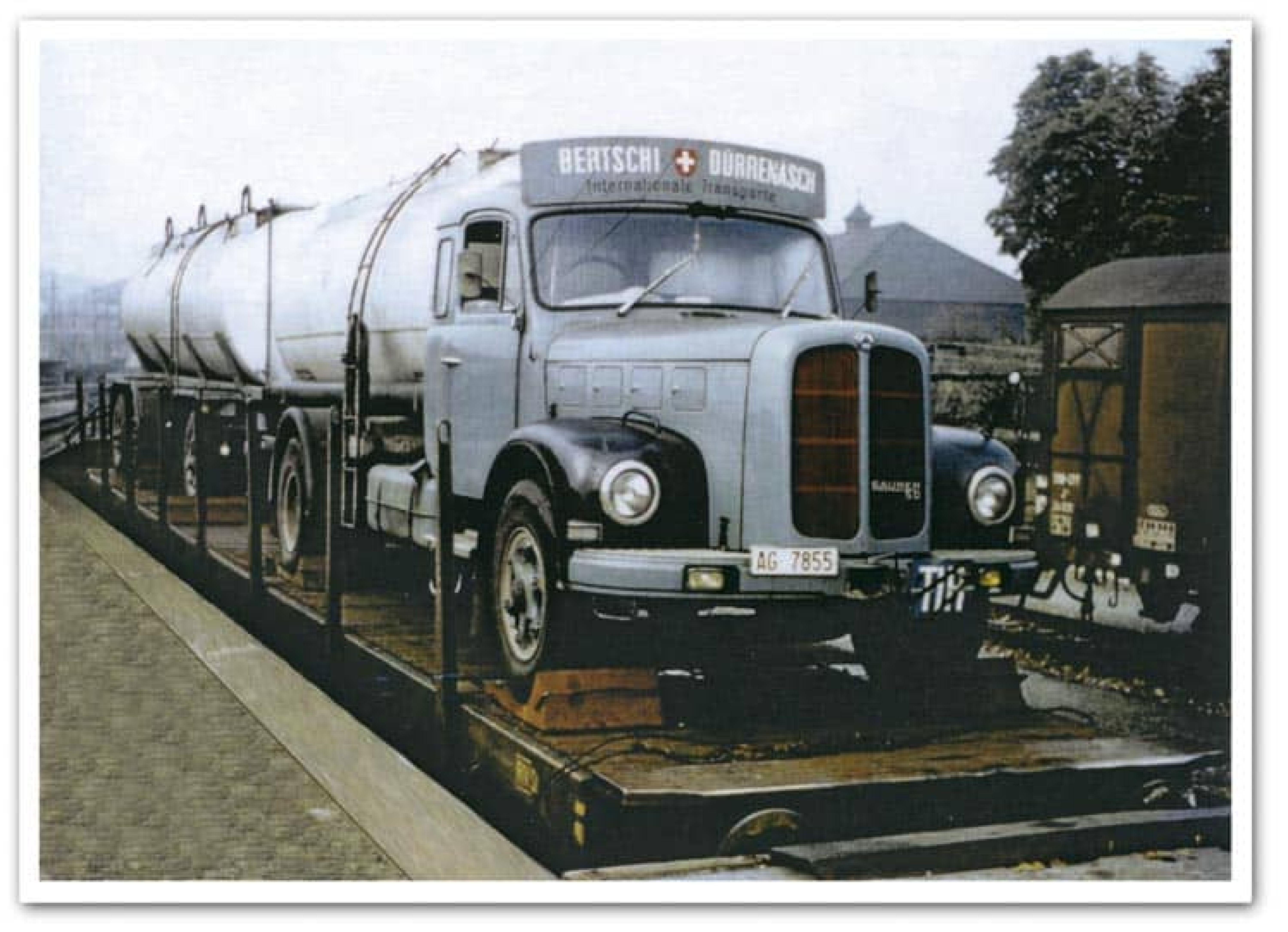
Bertschi's pioneering role in intermodal transport was further consolidated with its founding of Hupac SA in 1967, together with SBB and three other transport companies. Today, the network not only covers the whole of Europe, but also extends as far as China.
The last statement rings true especially considering the European Union's Green Deal, which aims to reduce transport-related greenhouse gases by 90% by 2050. In intermodal transport, Bertschi is already ahead of these goals by combining on a project basis electrically powered trains with e-trucks or HVO fuels for pre- and post-rail road transport. This approach will enable carbon neutral supply chains.
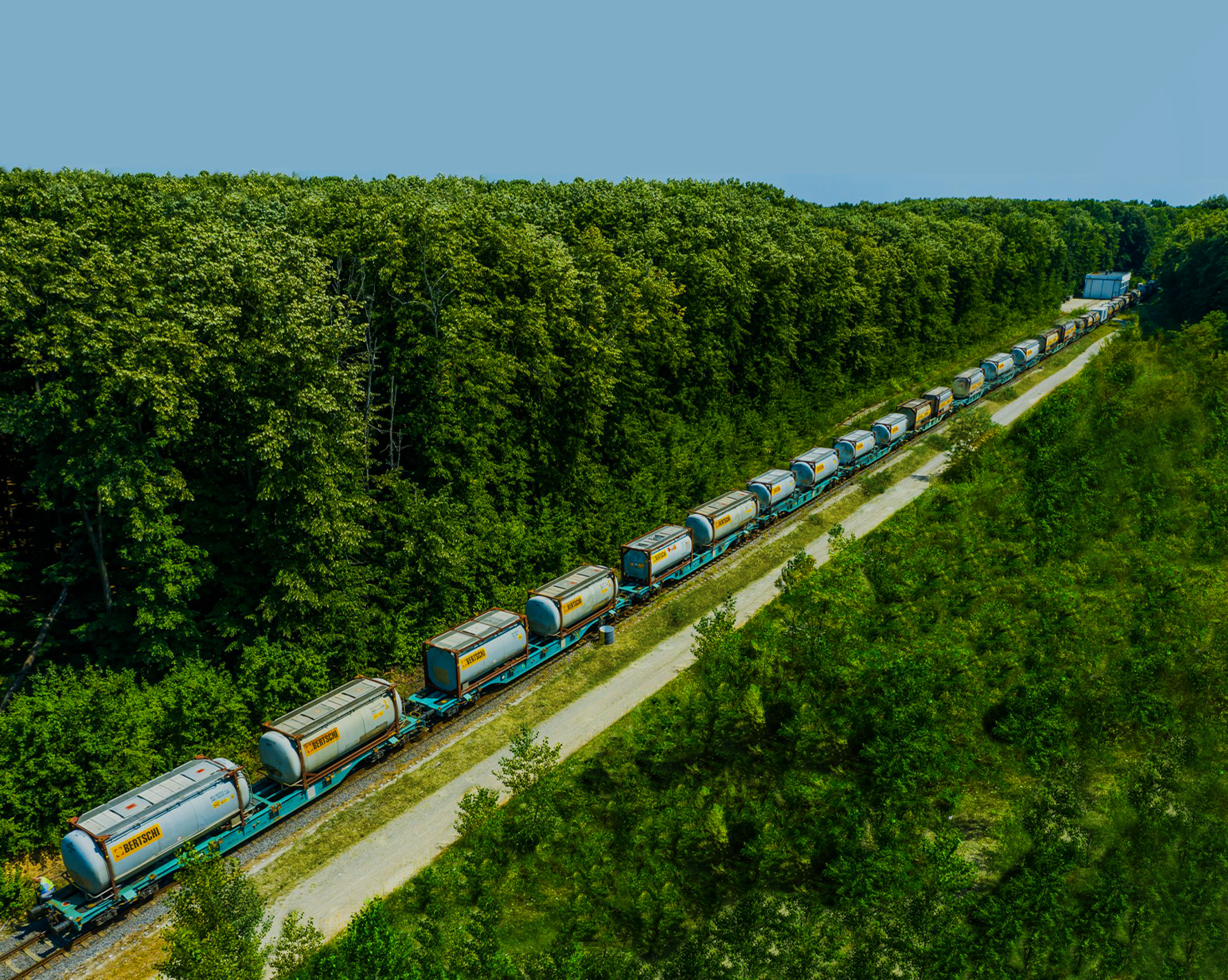
However, such transport concepts depend crucially on a well-developed, safe, and reliable rail network. “Investment and continuous development of this infrastructure are therefore essential," concludes Hans-Jörg Bertschi. As the market leader in sustainable intermodal logistics, the Bertschi Group fully acknowledges its responsibility to lead by example and drive the industry forward, continuing the pioneering legacy of Hans Bertschi, who 60 years ago transformed European logistics.
